- 2024-10-18
- Views:537
Before and after the National Day holidays, SHBS carefully planned and implemented a "goal-setting education" event, aiming to help students dispel confusion, form a comprehensive understanding of themselves and their future lives, and ensure that they can carry goals in their hearts and steadily progress on the path to success.
The event was conducted in two phases, providing differentiated education for different grade levels. Through this approach, the school was able to offer personalized guidance to each student more accurately.

预备年级和十年级
G Pre and G10
Junior students first listened to an inspiring story from a senior student, who shared his journey from hating studying to self-studying English and getting into an international school, then turning down offers from top 30 high schools in the USA to become the first student to skip a grade in his school, regaining confidence at Harvard University. This sharing greatly inspired the students, enhancing their courage to face the future and their determination for self-planning.
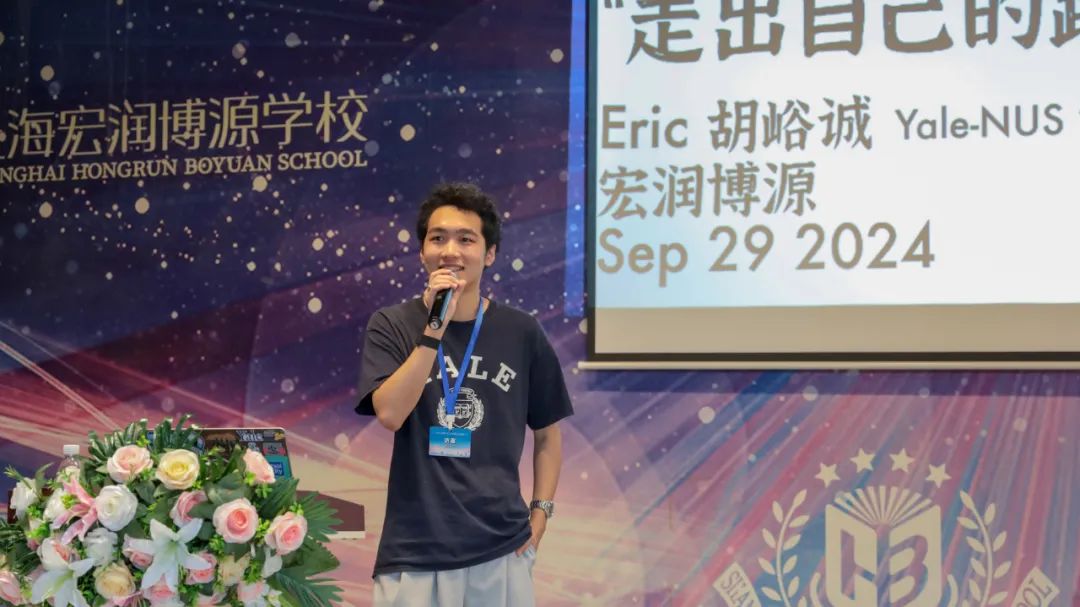
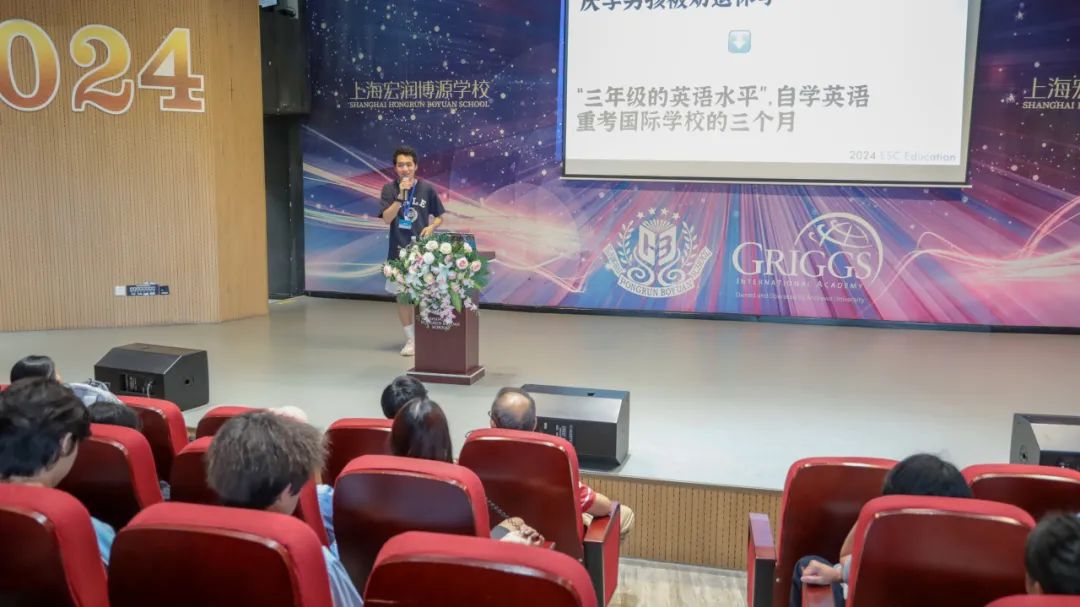
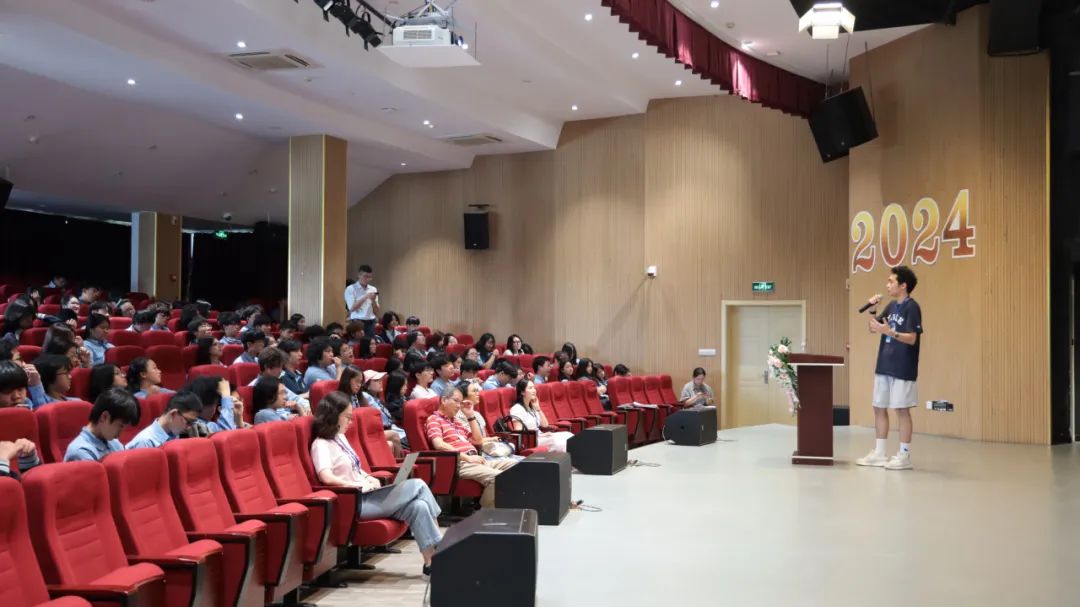
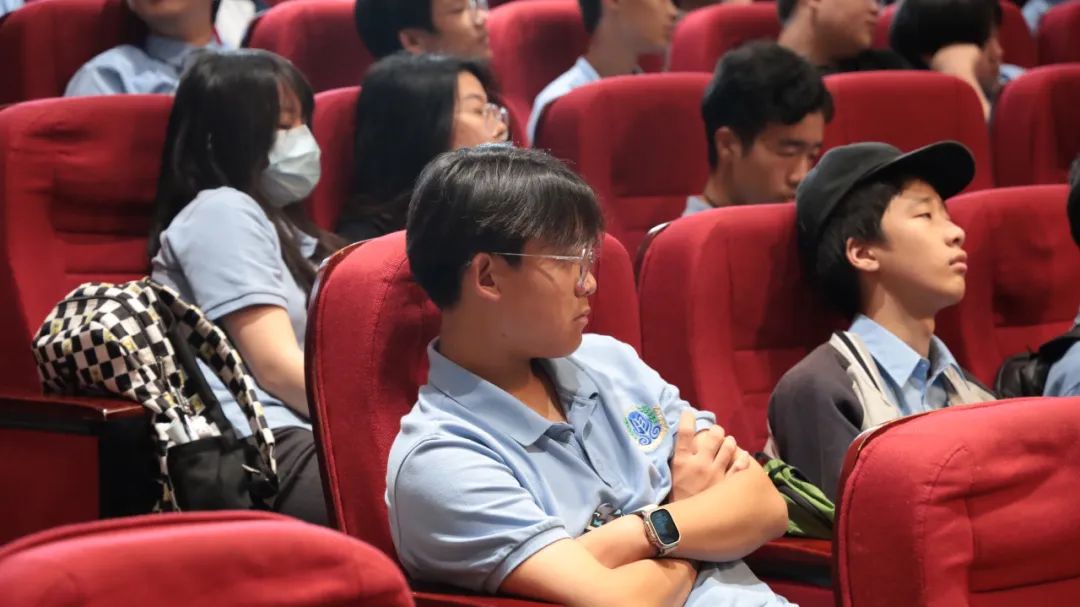
Ms. Ma also provided a lecture, elaborating on the path to American high school advancement, emphasizing the importance of GPA and the necessity of excelling in standardized tests. She pointed out that unlike domestic universities, foreign universities focus more on students' comprehensive development, including various extracurricular activities. Under the guidance of their class teacher, students wrote personal future plans, delving into suitable learning methods for themselves and gaining a clearer understanding of their learning goals and paths.
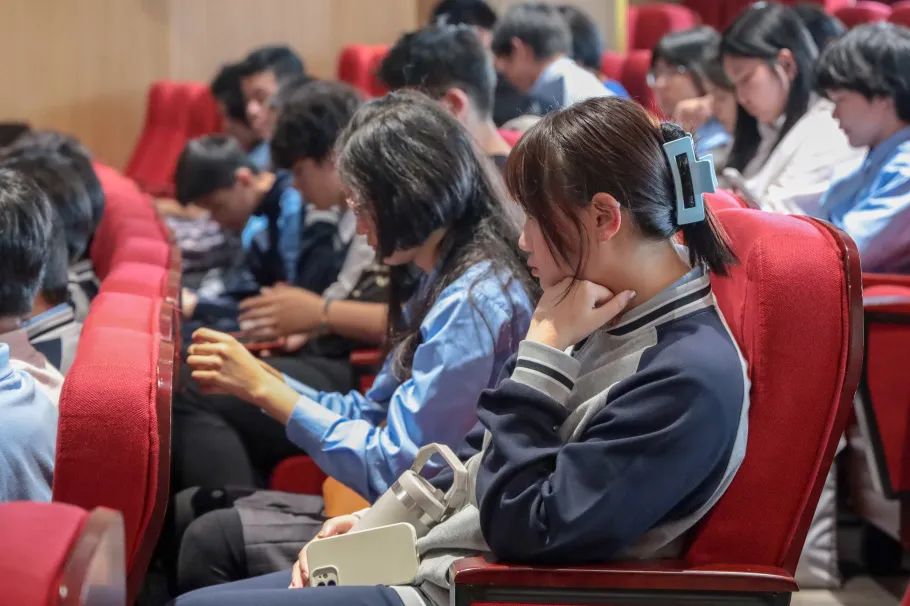
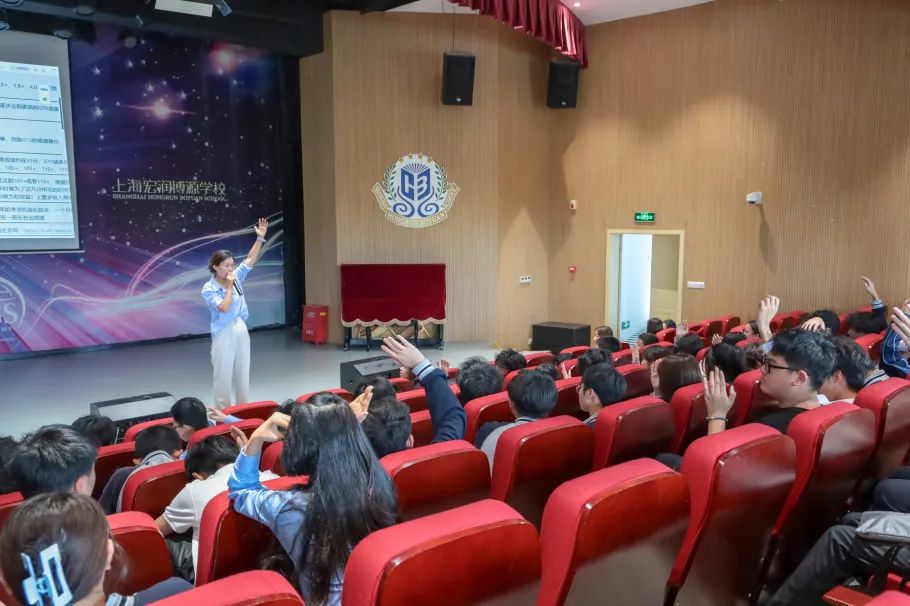
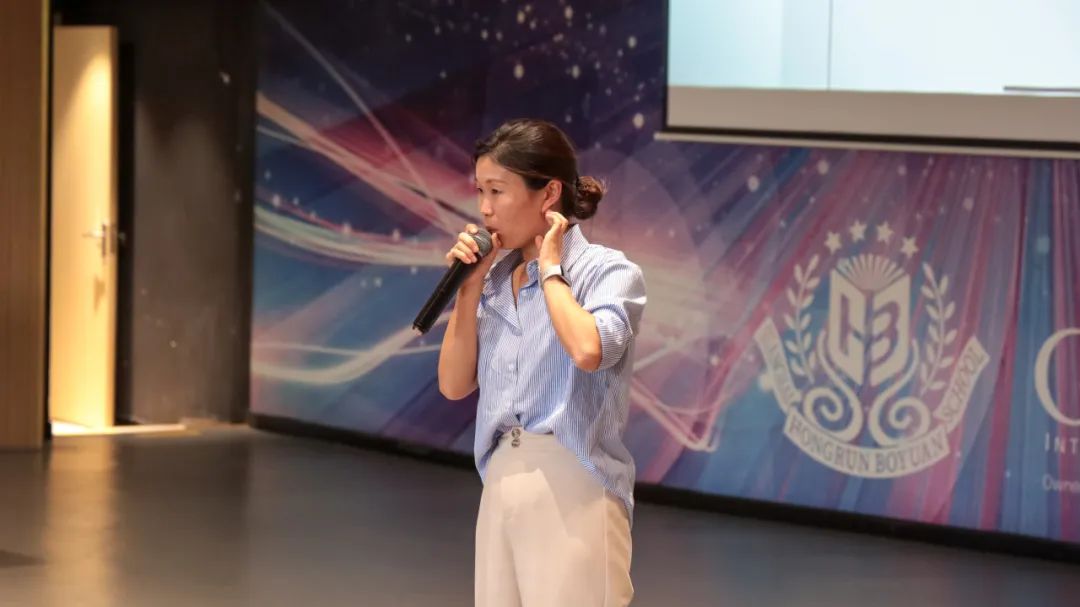
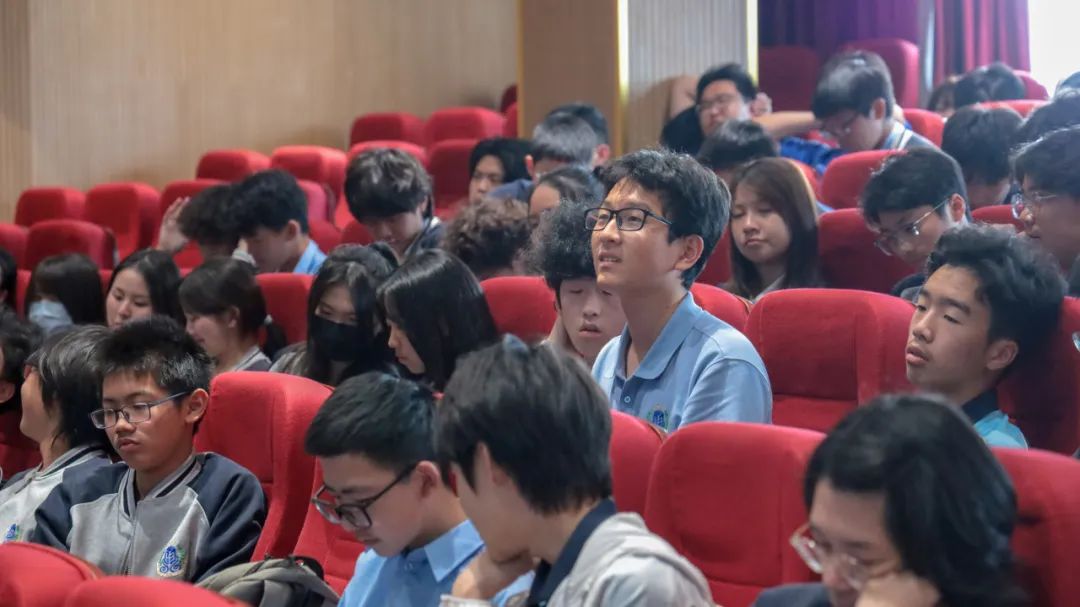
十一年级
G11
For eleventh-grade students who are about to face university applications, the event focused more on practical application preparations. As the ancient saying goes, "Plan for everything in advance, or it will be wasted." In the first round of activities, teachers emphasized the importance of early planning and understanding, guiding students to set short-term and long-term goals using the SMART principle. They also encouraged students to flexibly adjust their plans to adapt to changes in their personal situations. Subsequently, teachers helped students select the most suitable school environment based on their own circumstances through questionnaire filling. After completing the questionnaires, teachers further emphasized the importance of recommendation letters in college applications, advising students to choose teachers who are familiar with them to write compelling recommendation letters.
In the second week, Mr. Han from the College Counseling Department detailed the timeline for university applications, explained how to use platform resources to understand university requirements, and prepared students adequately for the application process. This included meeting standardized test score requirements and actively participating in activities and competitions related to their target majors. Mr. Han also suggested that students participate in summer schools to enrich their personal experiences and emphasized the importance of early planning. He also introduced the "holistic evaluation" system in American university applications, advising students to focus on academic planning, AP course selection and GPA enhancement strategies to comprehensively improve their competitiveness.
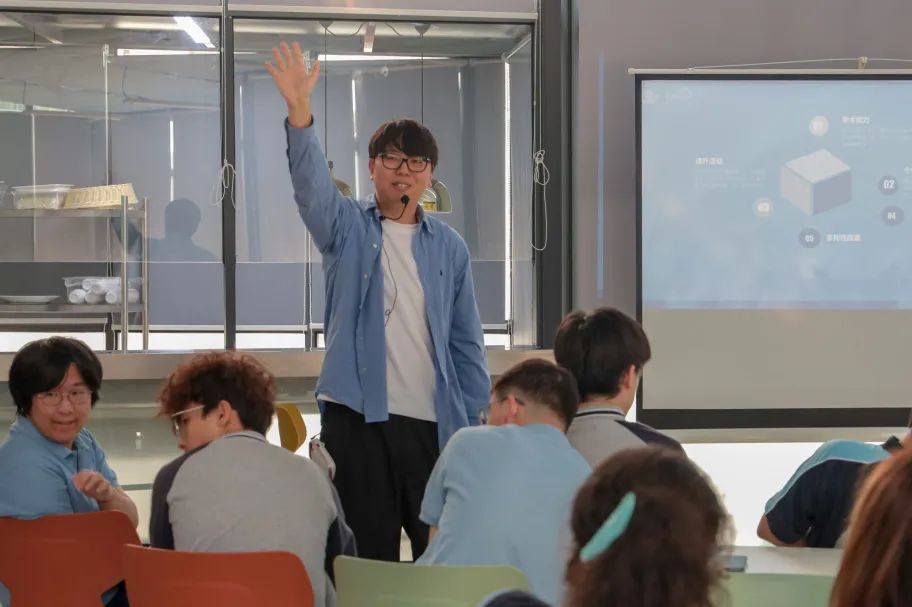
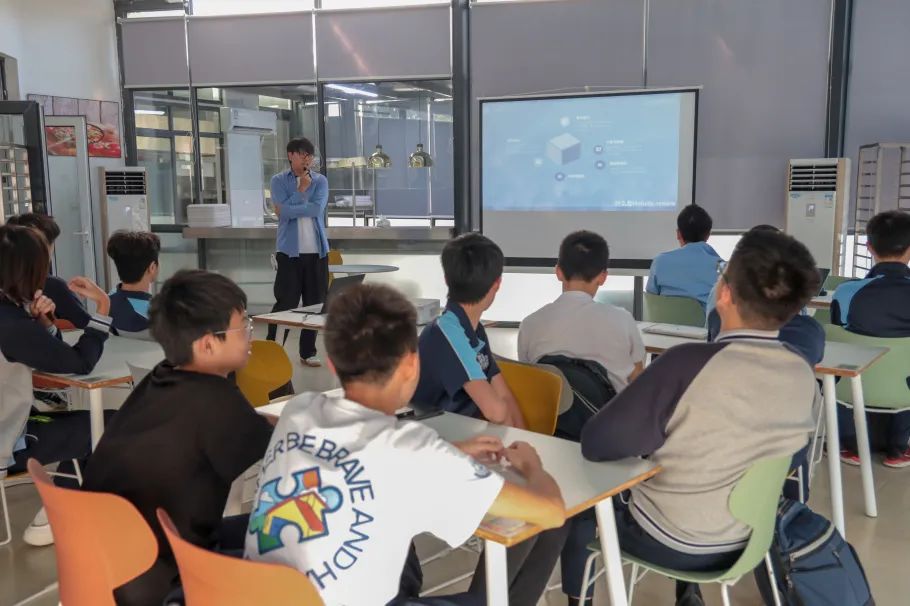
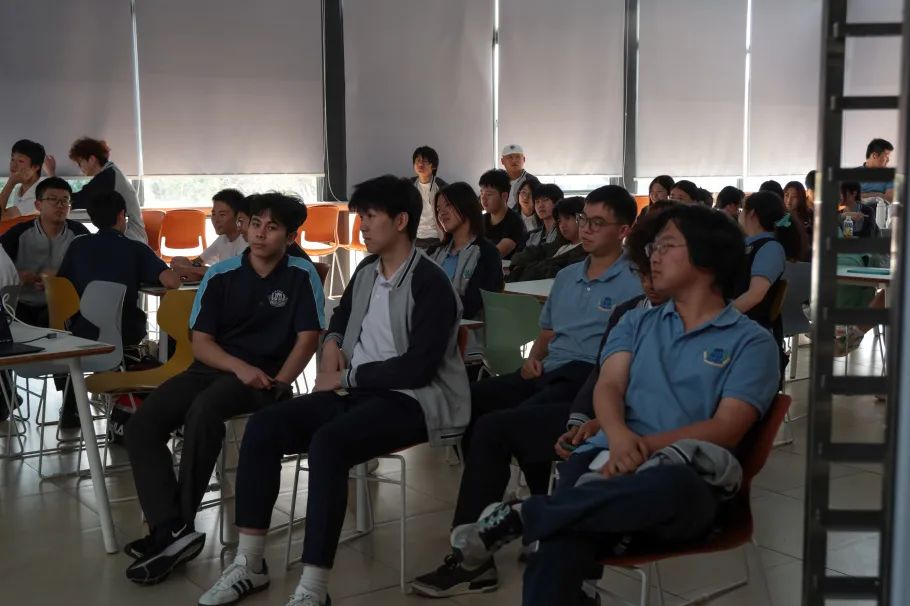
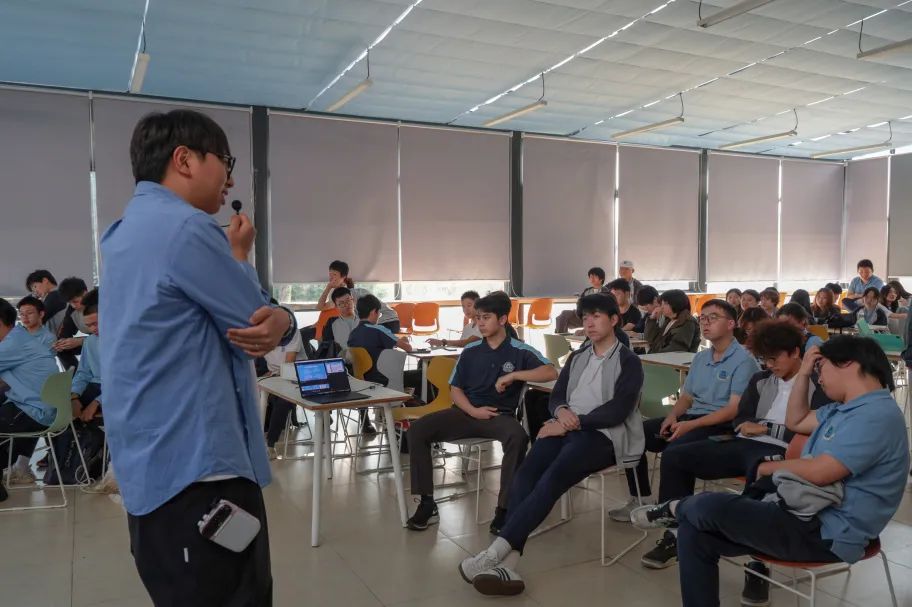
十二年级
G12
For twelfth-grade students entering the graduation application season, the goal-setting education places greater emphasis on achieving college application goals, with a profound understanding of oneself and the ability to make rational choices. Principal Chris Moses introduced the "Donut" learning method to students, emphasizing the setting of achievable goals. In the "Donut" chart, the outer layer represents the goal to be achieved "what", the circle clearly outlines the implementation path "how", and the inside discusses personal motivation "why". This method helps students plan clearly, ignite intrinsic motivation, and promote efficient learning.
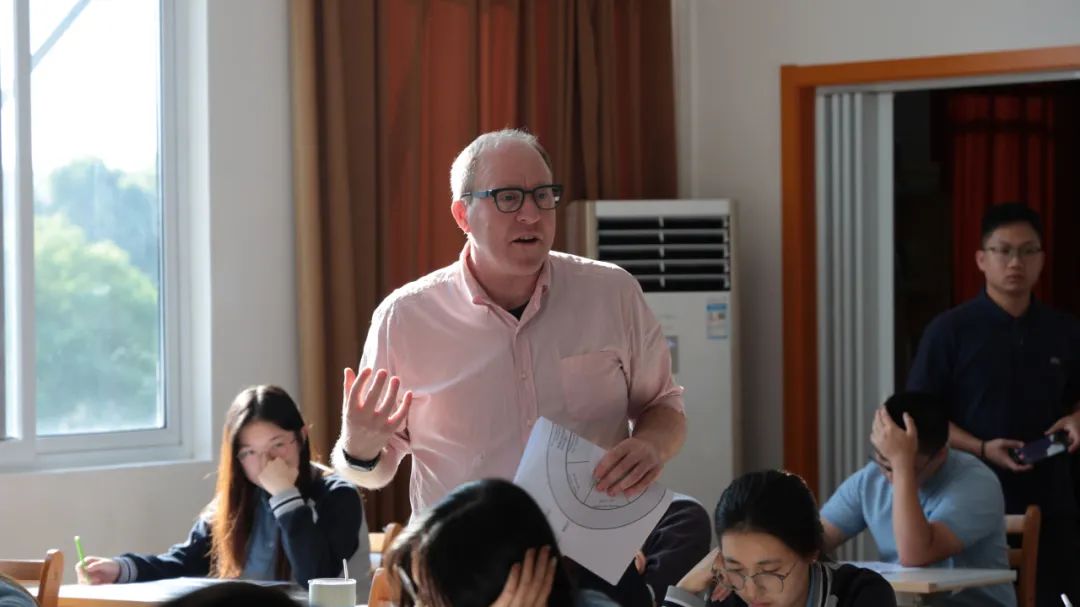
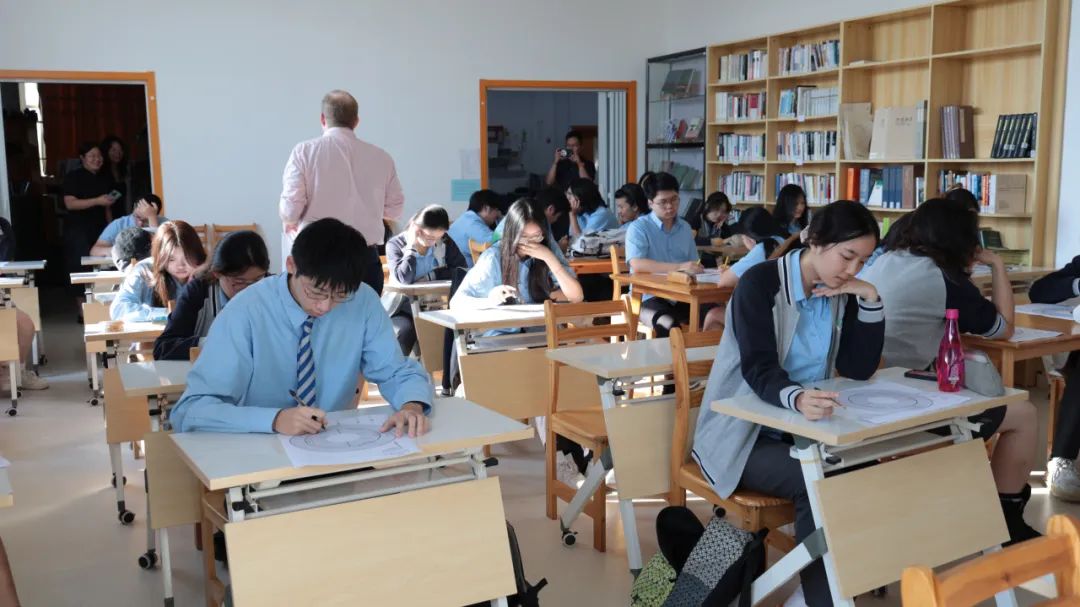
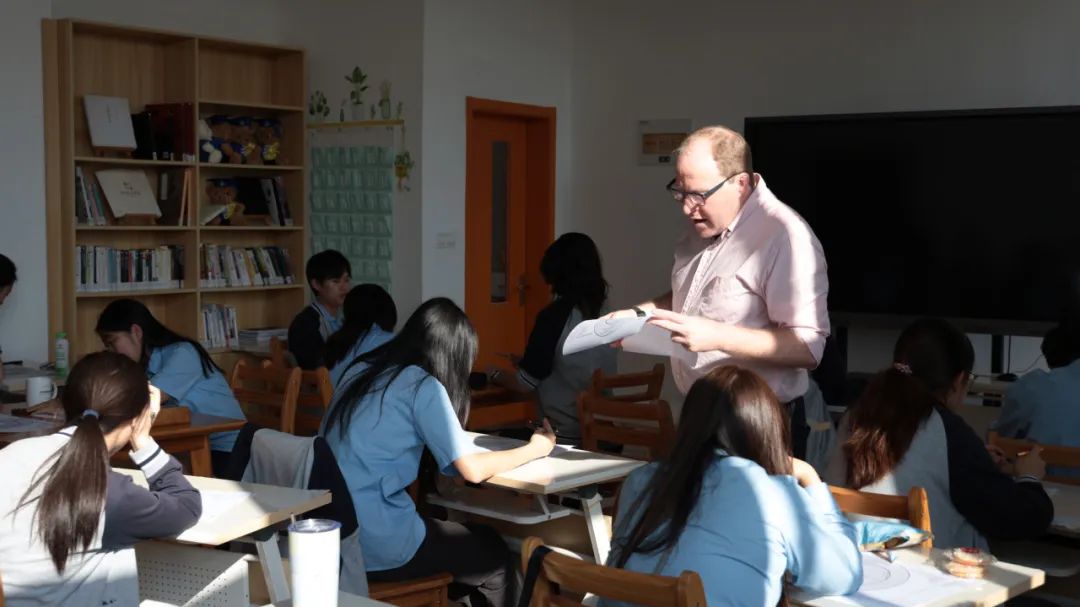
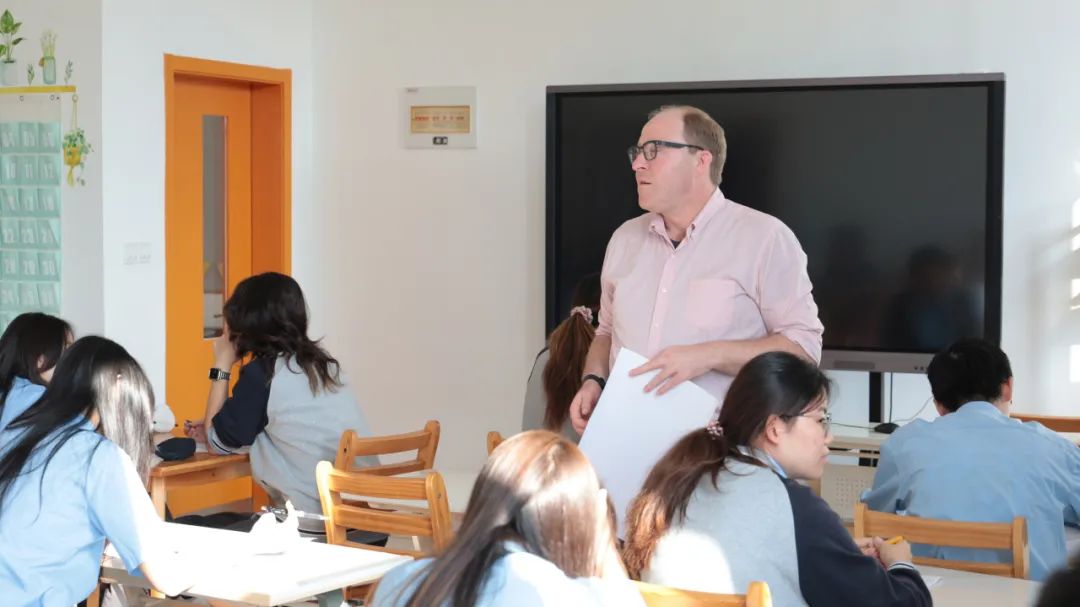
During the second week of goal-setting education, students engaged in one-on-one communication with foreign teachers in the library, discussing and revising their essays. The foreign teachers patiently pointed out issues in the essays and provided solutions, helping students better showcase themselves during the application process.
The goal-setting education activities at SHBS effectively helped students deepen their self-awareness, clarify future goals, and formulate action plans, laying a foundation for their growth and success. The school firmly believes that students will be able to achieve their dreams and become pillars of society.
学生活动感受
Student Reflections
Q
Before participating in goal-setting education, what did you think a goal was, and how did you plan your goals?
G10 Carrie:Before participating in the activity, I thought a goal was a desired outcome, such as getting into a good university or finding a good job. My way of planning goals was relatively simple - setting a general direction and striving towards it. However, I lacked specific plans and steps, and didn't know how to deal with possible difficulties and setbacks. Now I understand that goal planning needs to be more scientific and systematic, taking into account factors like strengths, weaknesses, and interests to create concrete action plans.
G11 Thea:I think of goals like a fishing rod pulling a fishing line, giving me the force to reel myself ashore. I divide them into short-term and long-term goals. Short-term goals are clear and practical, just requiring focused effort; long-term goals can be more abstract, like imagining my ideal college life or achieving good results in exams. These things provide me with motivation to accomplish short-term goals. Subconsciously, this staircase is set.
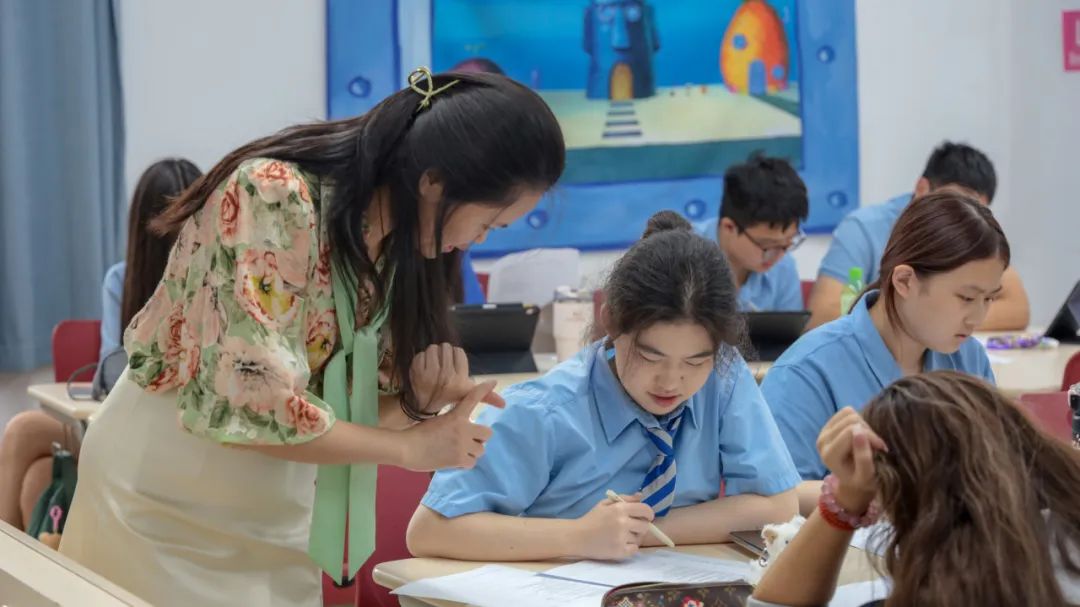
Q
What existing perceptions did this activity challenge for you?
G10 Carrie:Before this activity, I thought setting a goal was simply writing down a wish and waiting to achieve it. Through this activity, I realized that goals need to be specific, measurable, achievable, relevant, and time-bound (SMART principles). For example, I used to set a goal to read three books over the summer without a specific plan on how many pages to read each day or feedback after finishing. Now I know I need to break goals into smaller steps, like reading a certain number of pages each day and taking notes or discussing the book with others after finishing, to better achieve the goal and grow throughout the process.
G12 Han:The most significant realization from this goal education is the deeper introspection into oneself. Previous goal-setting education in 11th grade mainly focused on college selection and providing a basic understanding of universities. This year's goal-setting education, led by Principal Moses, delved into exploring the deepest goals within ourselves, making us aware of what we have sacrificed and what we need to sacrifice on this path. This experience was profound, helping me understand more clearly what I need to do and what I am currently doing on this journey of goals.
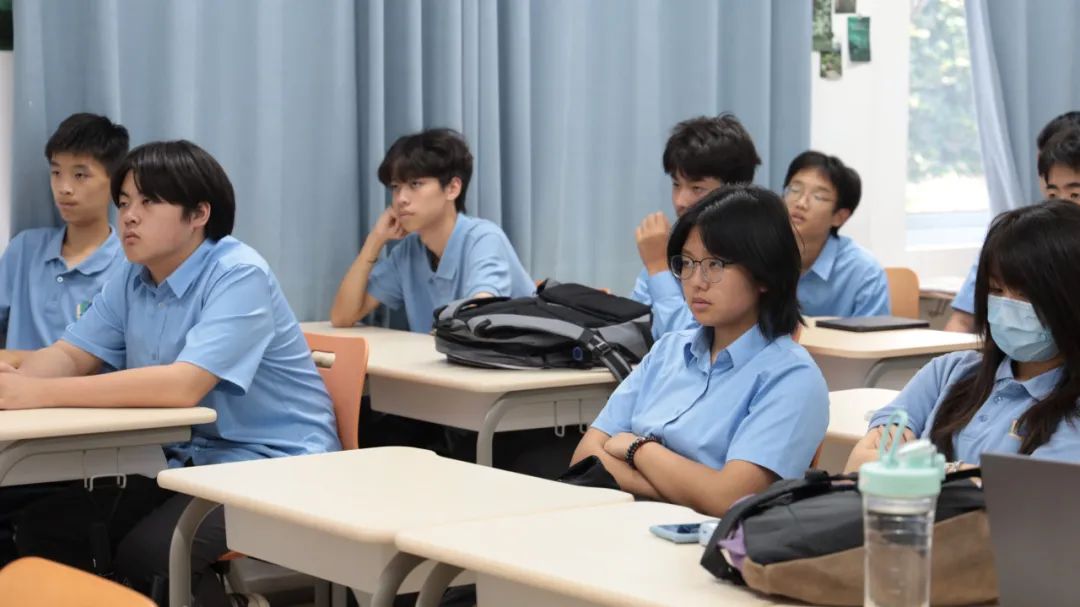
Q
Can you share one of your goals?
Gpre Lincoln:Personally, I have two goals. Academically, I aim to achieve an A in each subject before the end of every semester, and in terms of soft skills, I hope to start a club by next semester.
G10 Carrie:My goal is to reach 85 in the TOEFL before the end of next summer.
G11 Thea:I hope to hold a significant position in a company in the future, supporting 80% of the things I want to do with my salary. My high school goal is to live a comfortable high school life and then strive to get into a good liberal arts college.
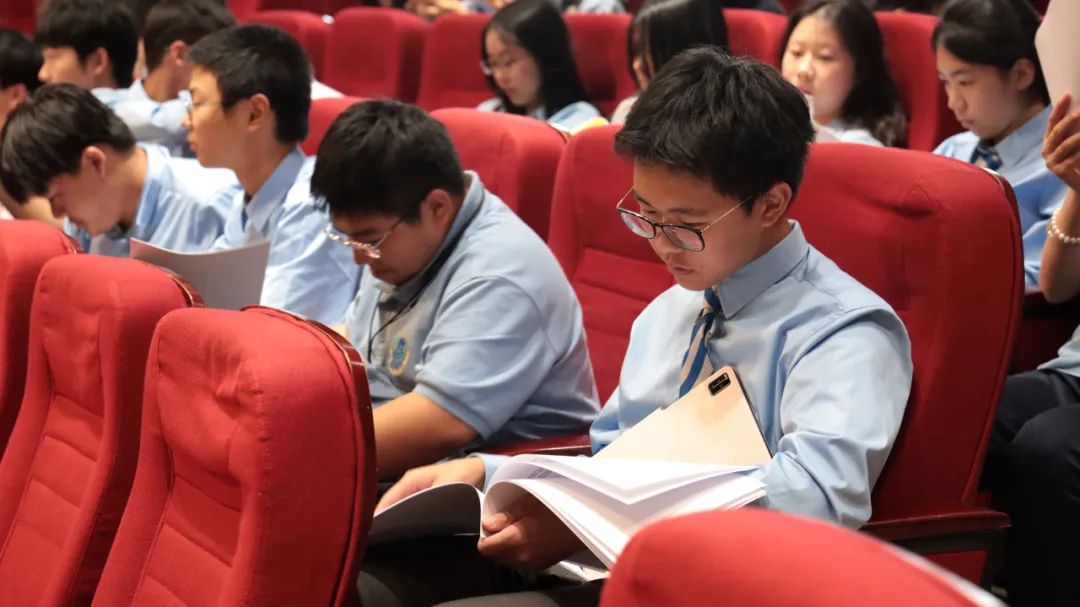
Q
What part of this experience did you find most rewarding, and why?
Gpre Lincoln:Based on this activity, I realized the importance of setting clear goals. Only by clarifying goals can we strive towards them rather than blindly act.
G11 Thea:In the 11th grade, I have to prepare for AP exams, work in the student council, participate in various activities, and take standardized tests, so the pressure is quite high. I think the most important thing is to make choices, not trying to do everything but adjusting the allocation of time between academics and activities. After participating in goal-setting education, I feel that I need to further understand what I am lacking and gradually make up for it in a prioritized manner. My primary task is to improve my GPA, followed by participating in competitions, while also balancing the work in the student council. Time is limited, so efficiency is crucial.
G12 Han:I initially thought this goal-setting education would focus on application essays, planning, and steps needed for applications. Yet, it turned out to be a deeper exploration of our goals, particularly focusing on introspection into our deepest desires, what goals we need to pursue, what we have already done on this path, and what we still need to do. Overall, this exploration was quite beneficial.
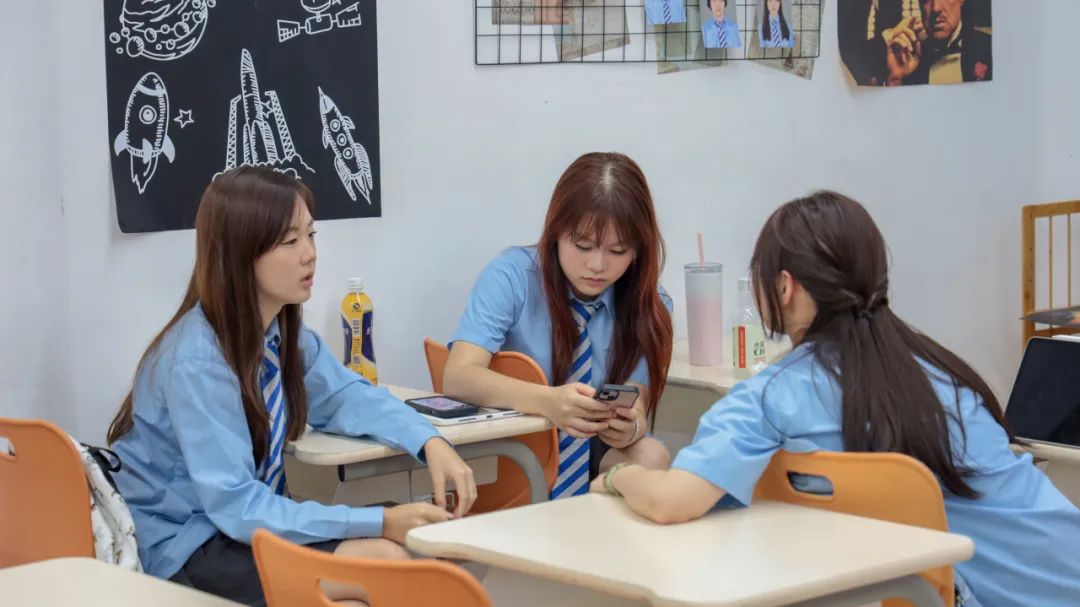
文| GPre:Kevin Zhang, Kevin Ouyang
G10:Ethan Lu
G11:Africa TD
G12:Tim Shen
译|Lexie Liu (G11)
图 | Jang
排版 | Jang












